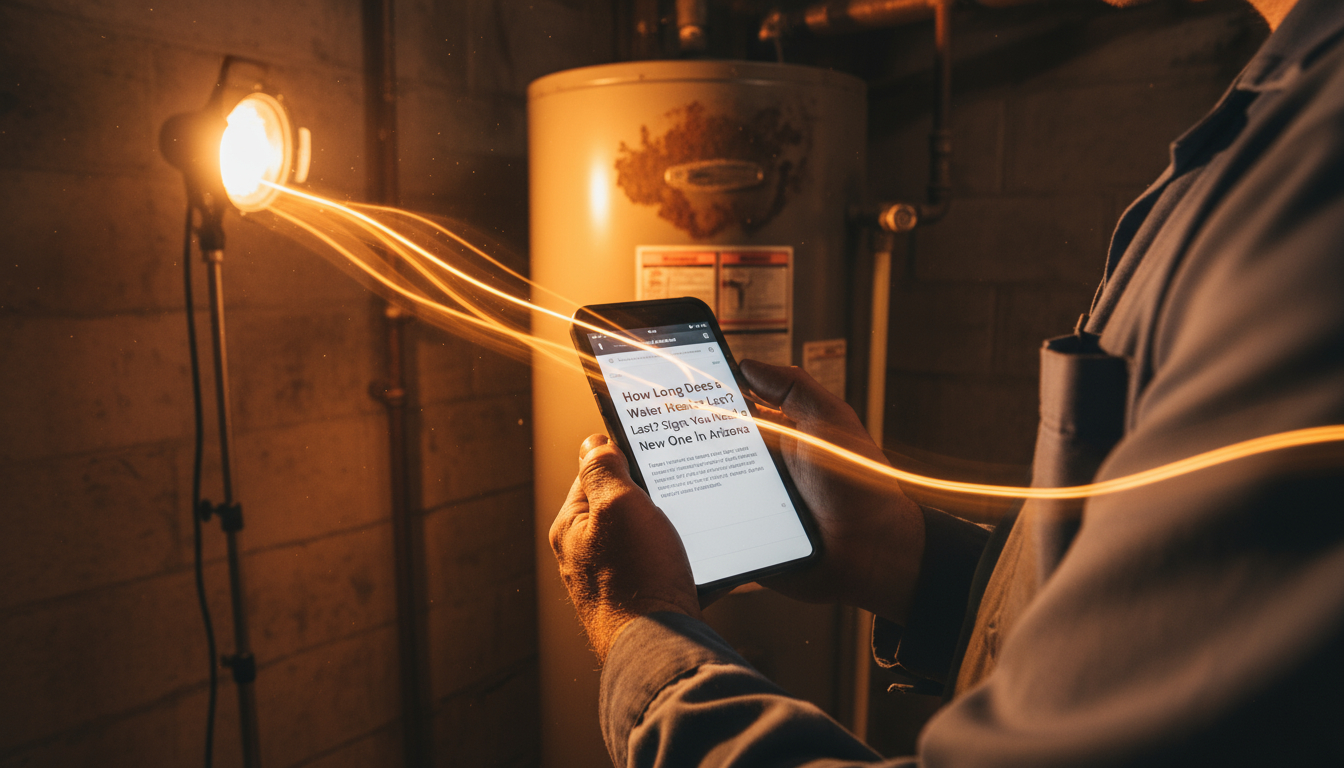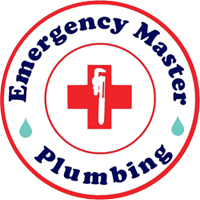

Water heaters are essential for daily comfort, providing hot water for showers, dishes, and laundry, but they don’t last forever, typically ranging from 8 to 12 years for traditional tank models. In Arizona’s harsh climate and hard water conditions, understanding the lifespan and warning signs can prevent unexpected breakdowns and costly repairs. This guide explores how long water heaters last, key signs of failure, and Arizona-specific challenges to help homeowners make informed decisions.
Understanding Water Heater Lifespan
The average lifespan of a water heater depends on its type, with traditional tank models lasting 8 to 12 years under normal conditions. Gas-powered tank water heaters often endure 8 to 12 years, while electric versions can reach 10 to 15 years due to fewer components prone to corrosion. Tankless water heaters, which heat water on demand without a storage tank, typically last up to 20 years, offering greater efficiency and longevity. These estimates assume regular maintenance, as neglect can shorten lifespan significantly. High-quality units with better insulation and thicker tanks from reputable brands tend to outlast budget options. Usage patterns also play a role; households with more occupants or higher hot water demand accelerate wear. In Arizona, local factors like extreme heat and mineral-rich water further influence durability. For instance, installing a water softener can extend life by mitigating mineral buildup. Overall, most homeowners should plan for replacement around the 10-year mark to avoid surprises. Monitoring age is straightforward—check the manufacturing date on the unit’s label for an accurate timeline.

Factors Affecting Water Heater Longevity in Arizona
Several elements determine how long a water heater lasts, with water quality being particularly critical in Arizona’s arid environment. Hard water, prevalent in areas like Phoenix and Scottsdale, contains high levels of calcium and magnesium, leading to scale buildup that insulates heating elements and reduces efficiency. This mineral accumulation can cut a unit’s life from 10-15 years to as little as 6-8 years if unaddressed. Maintenance practices, such as annual flushing to remove sediment, directly impact durability—neglected tanks corrode faster. Installation quality matters too; improper venting or sizing for household needs causes undue strain. Fuel source influences outcomes, as gas models may face more sediment issues than electric ones. Arizona’s hot climate exacerbates problems by increasing water usage during peak summer months, putting extra pressure on the system. Poor water pressure from sediment-clogged pipes is another common issue here. To maximize lifespan, homeowners should test water hardness annually and consider protective anode rods that sacrifice themselves to prevent tank rust. By addressing these factors proactively, Arizona residents can often push their water heaters toward the upper end of the 8-20 year spectrum.
Signs Your Water Heater Is Failing
Recognizing early warning signs can save Arizona homeowners from water damage and cold showers. Fluctuating water temperature, where hot water turns cold mid-use or fails to reach desired heat, often signals failing heating elements or thermostat issues. Strange noises like popping, rumbling, or banging from the tank indicate sediment buildup heating and expanding, a frequent problem in hard water regions. Rusty or discolored hot water points to internal corrosion, as the anode rod depletes and exposes the tank to rust—check by running a hot tap and observing brownish hues. Leaks around the base or fittings are a critical red flag, suggesting tank failure and potential flooding risks. Reduced hot water supply, where the tank empties faster than usual, shows recovery problems from sediment insulation. Low water pressure in hot lines versus cold ones arises from mineral deposits narrowing pipes. Age alone is a sign; if over 10 years without maintenance, proactive replacement is wise. Frequent repairs, especially after the 8-year mark, often signal it’s time for a new unit to avoid escalating costs.
Arizona’s Hard Water Challenges for Water Heaters
Arizona’s water supply, rated “very hard” at 210-350 PPM in cities like Phoenix and Chandler, accelerates water heater deterioration through relentless mineral deposits. Scale forms on heating elements, forcing the unit to consume more energy—up to 20-30% higher bills—and shortening lifespan by insulating the tank bottom. Sediment buildup reduces capacity, leading to lukewarm water and overheating risks that crack tanks. Corrosion from minerals erodes protective linings, causing leaks and inefficiency in the intense desert heat. Without intervention, these issues compound, turning a 12-year unit into a 7-year headache. Local reports confirm Phoenix-area hardness exacerbates plumbing strain, with scale clogging valves and dip tubes. Homeowners notice drier skin and spots on fixtures as side effects, but the heater bears the brunt. Installing a water softener neutralizes ions, preventing scale and extending life by years. Regular descaling services tailored to Arizona’s conditions are essential for maintaining performance.
Maintenance Tips to Prolong Your Water Heater
Simple habits can extend your water heater’s life, especially in Arizona’s demanding conditions. Flush the tank annually to remove sediment—turn off power, attach a hose to the drain valve, and empty until clear, a process taking 20-30 minutes. Inspect the anode rod every 3-6 months; replace if more than half corroded to shield the tank. Set temperature to 120°F to balance safety and efficiency, reducing scaling in hard water. Insulate pipes and the tank to combat heat loss in variable Arizona weather. Test the pressure relief valve yearly by lifting the lever—replace if it doesn’t discharge water properly. For tankless models, descale quarterly using vinegar solutions to dissolve minerals. Monitor for leaks around connections and address promptly with plumber’s tape. In hard water areas, a whole-home softener filters minerals before they reach the heater. These steps, done consistently, can add 2-5 years to lifespan and cut energy costs by 10-15%.
When to Replace Your Water Heater in Arizona
Replacement becomes urgent when signs compound, particularly after 8-12 years in Arizona’s hard water. If leaks appear, shut off water immediately to prevent damage—tankless units fare better here with 20-year spans but still need checks. Energy bills spiking 20% or more indicate inefficiency from scale, warranting a swap to ENERGY STAR models. For safety, replace if the unit predates modern codes or shows rust. Arizona incentives like rebates for efficient upgrades make timing right during mild seasons. Professional assessment confirms if repair or replacement saves money—often, post-10-year fixes exceed new unit costs. Opt for tankless in sunny Arizona for endless supply and lower bills, but ensure gas line compatibility.
In summary, water heaters last 8-20 years depending on type and care, but Arizona’s hard water demands vigilance against sediment and corrosion. Watch for temperature swings, noises, leaks, and discoloration to catch issues early. Regular maintenance like flushing and softening water keeps systems running efficiently. When replacement looms, choosing the right professional ensures seamless installation.
For reliable water heater services in Arizona, including inspections, repairs, and installations tailored to local hard water challenges, contact Emergency Master Plumbing & Air at 623-584-4706. Their expert team provides prompt, trustworthy solutions to keep your hot water flowing.
